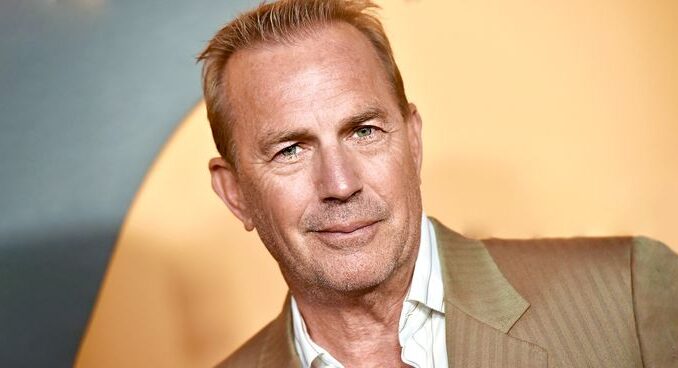
Yellowstone Changed Me: The Echoes of a Dutton Life
To step into the boots of John Dutton, patriarch of the sprawling Yellowstone ranch, is not merely to don a costume; it is to inhabit a titan of the American West, a man carved from the land he fiercely defends. For Kevin Costner, an actor whose career has long been synonymous with the rugged individual and the sweeping landscape, this role was perhaps an inevitable homecoming. Yet, as he reflects on his time as John Dutton, it becomes clear that this wasn’t just another part; it was an immersive experience that burrowed deep, leaving an indelible mark. “Yellowstone changed me,” Costner might well attest, for the spirit of the ranch, the weight of the land, and the unyielding nature of the man he portrayed, seeped into his very being.
The primary transformative agent was, undoubtedly, the character of John Dutton himself. Dutton is not merely a rancher; he is a living monument to a bygone era, a grizzled sentinel standing guard over a legacy that predates states and property lines. Costner, with his innate gravitas and understanding of Western archetypes, didn’t just play Dutton; he became him. This immersion demanded more than memorizing lines; it required an emotional excavation, a channeling of Dutton’s stoic defiance, his fierce love, his profound loneliness, and his terrifying capacity for violence. Every line etched on John Dutton’s face tells a story of unforgiving sun and unyielding will, and Costner had to feel the weight of those stories. To embody such a character night after night, season after season, forces an actor to confront the very nature of power, tradition, and the agonizing choices made in their preservation. The ethical ambiguities Dutton navigated – the necessary evils, the moral compromises – likely sparked a deeper contemplation within Costner about the cost of holding onto something so vast and so vulnerable.
Beyond the character, the very setting of Yellowstone acted as a formidable, silent co-star in Costner’s transformation. The show, while fictional, draws its power from the raw, untamed majesty of Montana. For an actor who has spent much of his career celebrating the American frontier, being immersed in that breathtaking, often brutal, landscape on a daily basis is more than just a backdrop; it’s a spiritual experience. The biting winds, the expansive skies that stretch to eternity, the towering mountains that tear at the heavens, the very scent of pine and horse sweat – these sensory inputs aren’t just details; they are reminders of humanity’s smallness and the land’s enduring power. Costner, one imagines, spent countless hours gazing across those sweeping plains, the same vistas that John Dutton saw, feeling the same ancient currents that shaped his character. This profound connection to the physical environment fosters a deep reverence, a renewed appreciation for the wild places that still exist and the fierce tenacity required to protect them. It’s a reminder that land is not just property; it’s a pulse, a living entity that demands respect, and often, sacrifice.
This isn’t merely acting; it’s an inhabitation. The lines between Kevin Costner, the seasoned actor, and John Dutton, the burdened patriarch, inevitably blurred. Costner, already a proponent of authenticity and a storyteller drawn to American narratives, found in Yellowstone a canvas that resonated with his core values. He wasn’t just wearing the hat; he was feeling the weight of the generational responsibility, the relentless pressure to keep the ranch intact, no matter the personal cost. Reflecting on this time, Costner might speak not just of Dutton’s lines, but of Dutton’s silence – the long stretches of contemplation, the unspoken burdens he carried. This experience would have reinforced his understanding of legacy, of family ties that bind tighter than any rope, and the often-lonely burden of leadership. He would have walked away with a heightened sense of stewardship, a more visceral understanding of the fight for existence against encroaching modernity, and perhaps, a renewed appreciation for the simple, enduring values of grit, loyalty, and fierce independence.
When Kevin Costner reflects on his time as John Dutton, he isn’t just recounting a job well done. He’s speaking to a profound internal shift, a deepened understanding wrought by the forge of an unforgettable role and an irreplaceable landscape. “Yellowstone changed me” is not hyperbole; it is the truth of an artist who allowed the rugged spirit of the American West, embodied in a legendary character, to take root within him. He left the Yellowstone ranch not just as an actor moving on to his next project, but as a man indelibly marked by the echoes of Dutton’s struggles, the majesty of Montana, and the enduring power of a story that cuts to the very heart of what it means to belong to the land.
